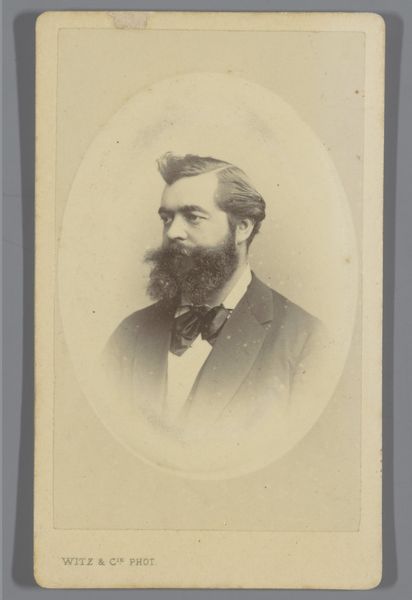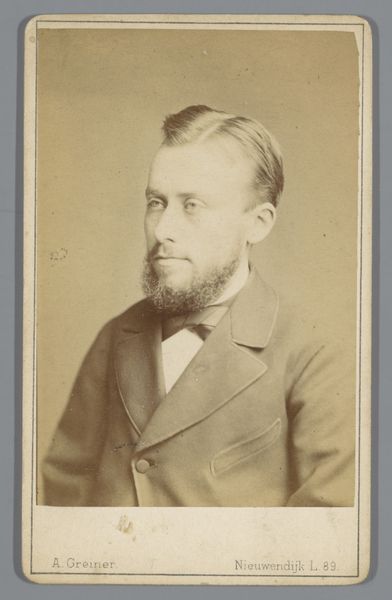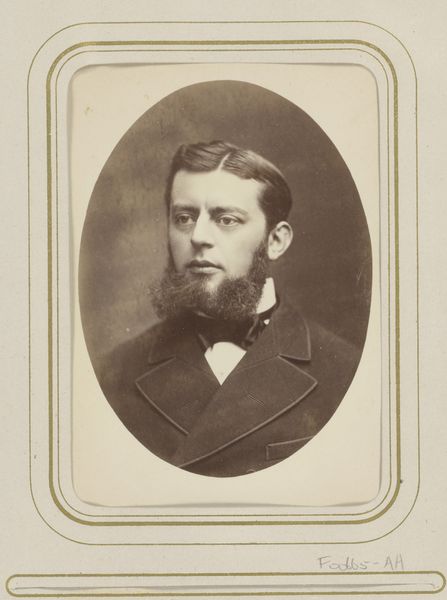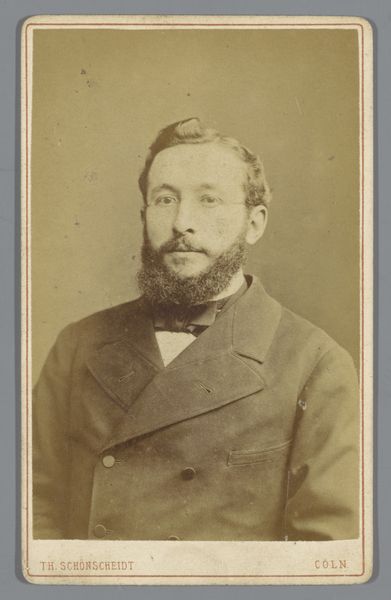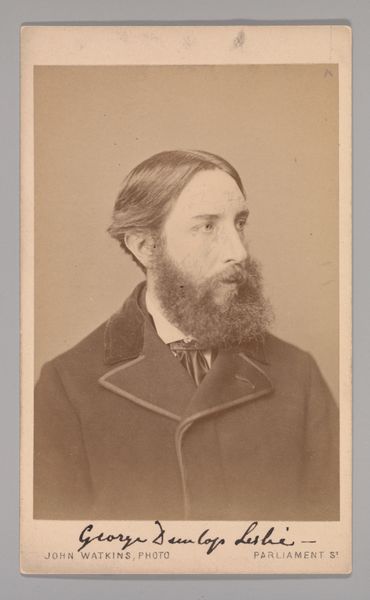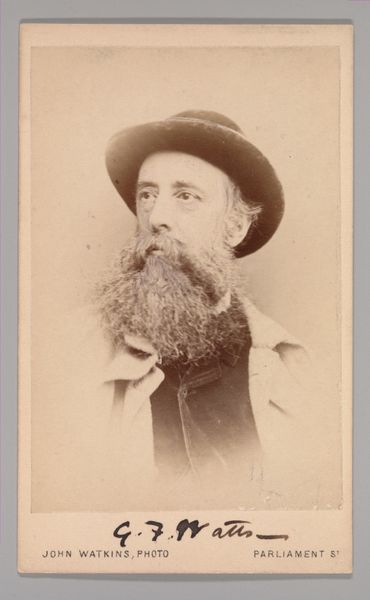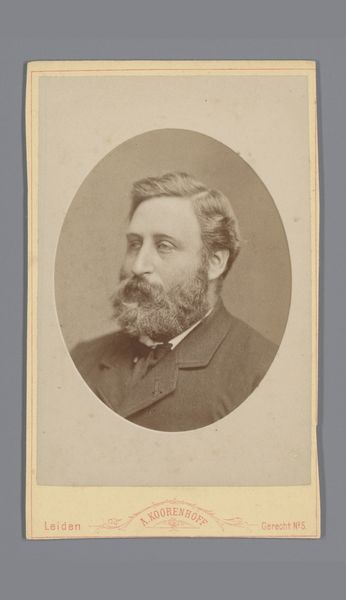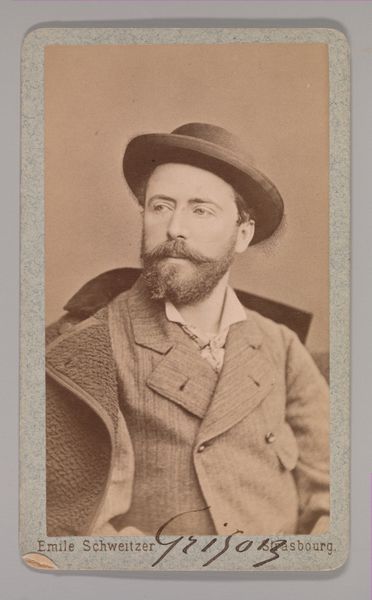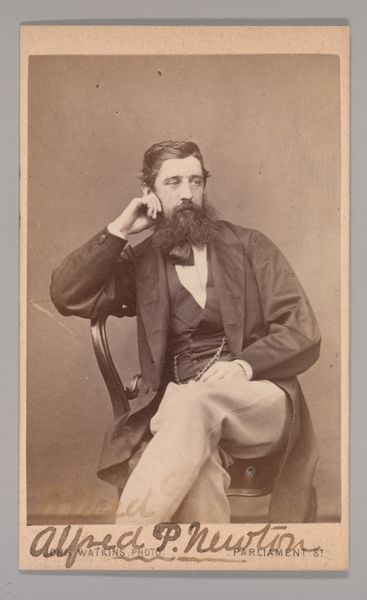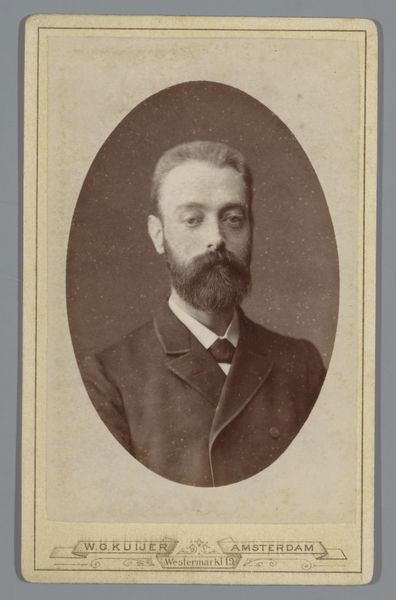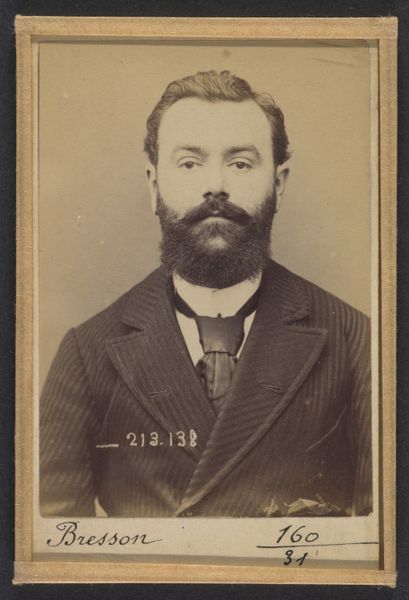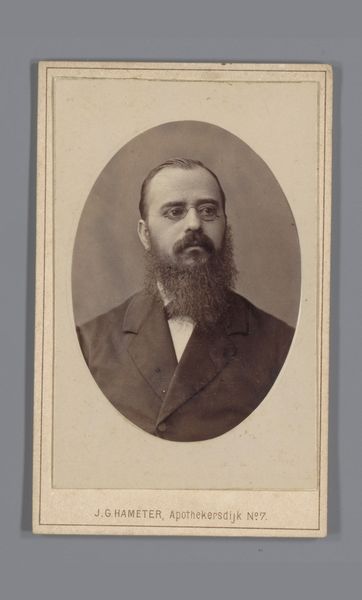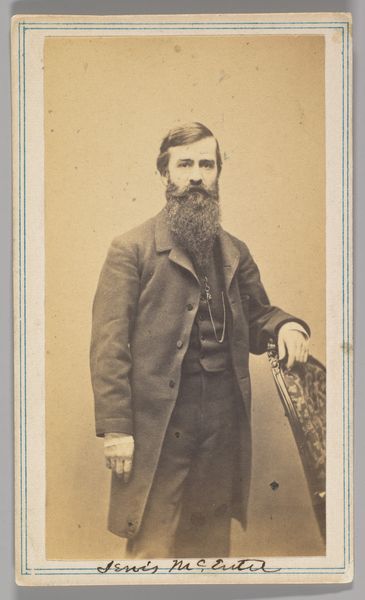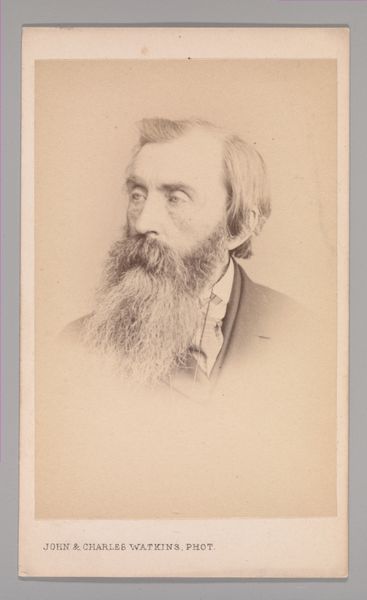![[Edward John Poynter] by John and Charles Watkins](/_next/image?url=https%3A%2F%2Fd2w8kbdekdi1gv.cloudfront.net%2FeyJidWNrZXQiOiAiYXJ0ZXJhLWltYWdlcy1idWNrZXQiLCAia2V5IjogImFydHdvcmtzLzk0OTFiMzYwLTAxYjQtNDA3Zi1iNzFlLTc3ZmQyMjk0ZWFkYi85NDkxYjM2MC0wMWI0LTQwN2YtYjcxZS03N2ZkMjI5NGVhZGJfZnVsbC5qcGciLCAiZWRpdHMiOiB7InJlc2l6ZSI6IHsid2lkdGgiOiAxOTIwLCAiaGVpZ2h0IjogMTkyMCwgImZpdCI6ICJpbnNpZGUifX19&w=3840&q=75)
paper, photography, gelatin-silver-print, graphite
#
portrait
#
print photography
#
paper
#
photography
#
gelatin-silver-print
#
men
#
graphite
#
paper medium
Dimensions: Approx. 10.2 x 6.3 cm (4 x 2 1/2 in.)
Copyright: Public Domain
This photograph of Edward John Poynter was made by John and Charles Watkins, likely in their Parliament Street studio in London, sometime in the mid-19th century. It's a small object, made by the wet collodion process on a glass plate, then printed on paper. Photography at this time was still a relatively new technology, and photographers were experimenting with different ways to capture images. This particular photograph is a good example of how the wet collodion process could be used to create a detailed and nuanced portrait. The tones are rich and varied, and the subject is well-lit. It is also an artifact of the growth of industrial processes that supported the rise of the Victorian middle class. While the wealthy could commission painted portraits, the burgeoning professional class could participate in the culture of image making. In the end, this small photograph shows us how closely art, craft, and social change were intertwined during the Victorian era.
Comments
No comments
Be the first to comment and join the conversation on the ultimate creative platform.
